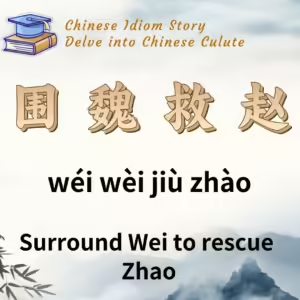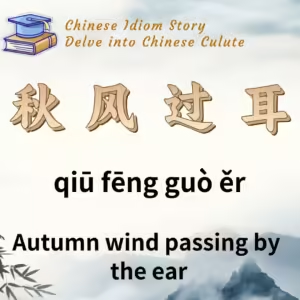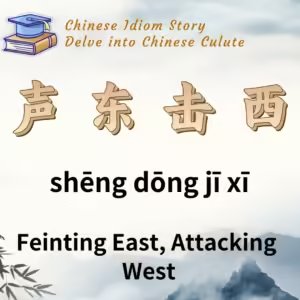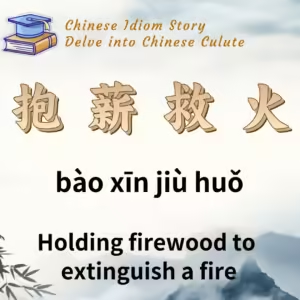
Chinese Idiom: 围魏救赵 (Wei Wei Jiu Zhao)
English Translation: Surround Wei to rescue Zhao
pīn yīn: wéi wèi jiù zhào
Idiom Meaning: This idiom refers to the strategy of attacking an enemy’s rear or base rather than confronting them directly, thereby forcing them to retreat to defend their own territory.
Historical Source: Records of the Grand Historian (《史记·孙子吴起列传》)
Idiom Story:
During the early Warring States period, the newly established Wei state, under the rule of Duke Wen of Wei, had become a dominant power in the Central Plains. Seeking to expand its territory, the Wei state became increasingly aggressive. In 353 BC, Duke Hui of Wei launched an attack against the Zhao state, besieging its capital, Handan.
In response to Zhao’s plea for help, Duke Wei of Qi ordered generals Tian Ji and Sun Bin to mobilize forces to assist Zhao. Sun Bin assessed the situation and realized that Wei’s elite troops had deeply penetrated Zhao territory, leaving their homeland vulnerable. Instead of directly confronting the besieging forces at Handan, Sun Bin proposed an alternative strategy: to attack Wei itself.
Following this counsel, the Qi army advanced into Wei territory, forcing the Wei troops, who were engaged in the siege, to hastily withdraw to defend their homeland. This diversion allowed the Qi and Zhao forces to regroup. Subsequently, when the Zhao troops arrived exhausted from their long journey, they united with the Qi army and defeated the Wei forces decisively at the Battle of Guiling.
This clever strategy of “surrounding Wei to rescue Zhao” not only saved Zhao from imminent danger but also highlighted the effectiveness of indirect tactics in warfare. Over time, this episode gave rise to the idiom “围魏救赵,” illustrating a cunning approach to dealing with conflict and adversaries.






